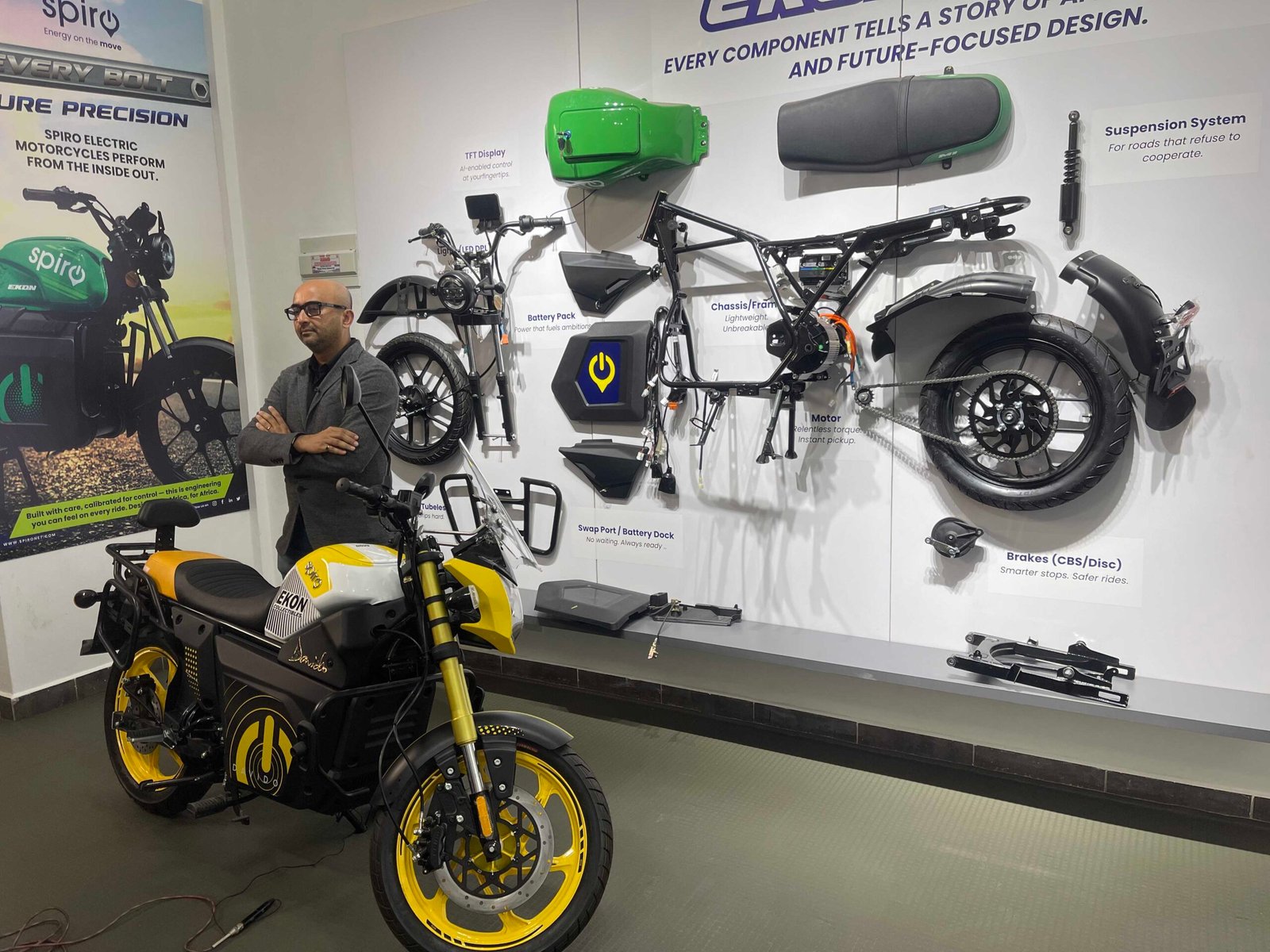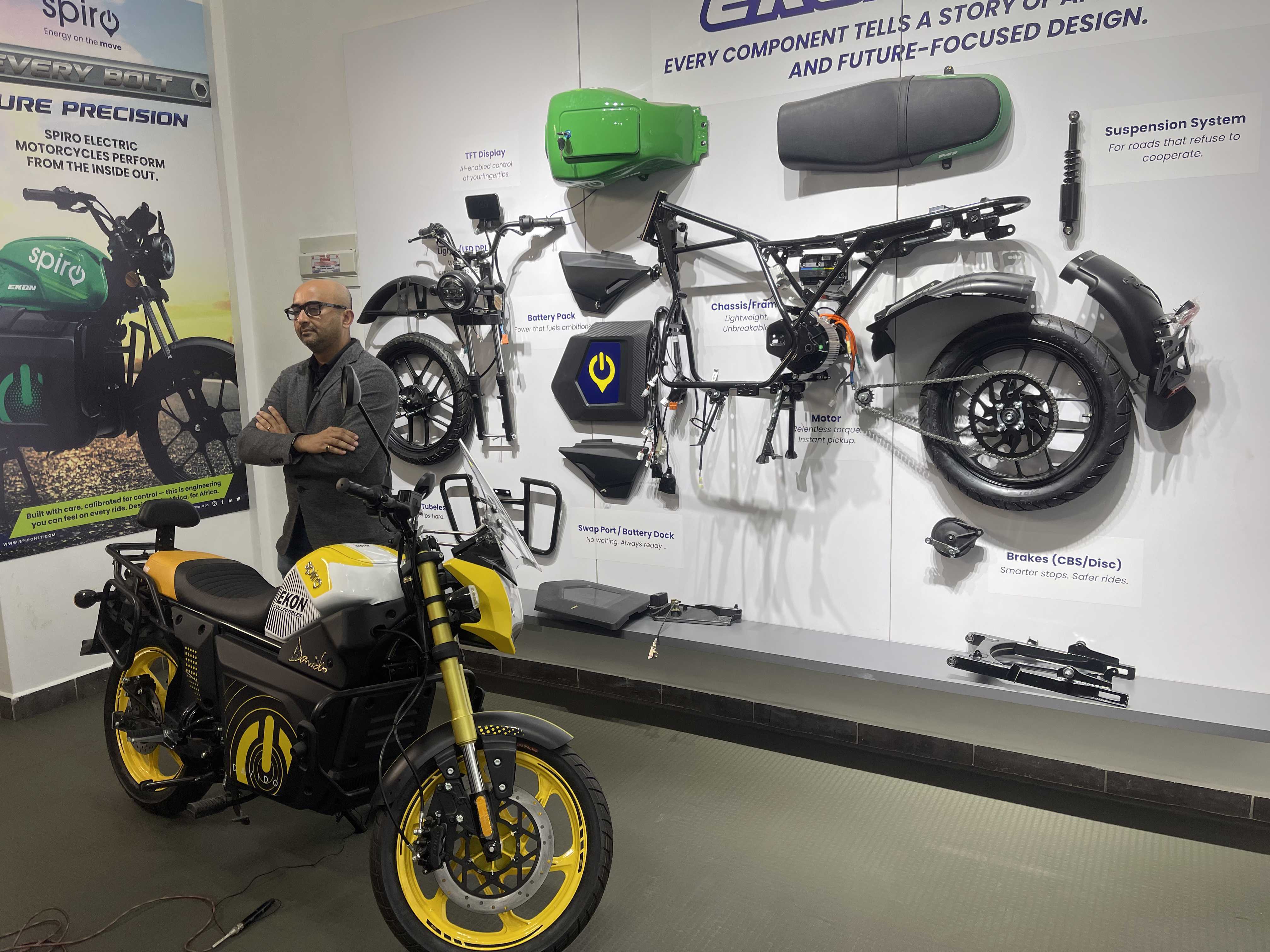
Kaushik Burman had already made his mark in the global energy scene. But he saw something bigger in Africa’s restless roads, a chance to turn clean mobility into a movement. Backed by over $150 million in funding, that’s the promise Spiro is now building, one electric bike at a time.
- Kaushik Burman leads Spiro, an e-mobility company aiming to make electric bikes desirable and affordable in Africa.
- Spiro has received over $150 million in funding, enabling operations and expansion across several African countries.
- The company focuses on innovation grounded in practical application, ensuring affordability and significant savings for users.
- Spiro promotes local production in Africa, sourcing components regionally and establishing assembly plants.
Motorcycles remain the most accessible form of mobility in Africa, but they’re also among the dirtiest because they run on fuel. A single petrol motorbike can emit up to ten times more hydrocarbons per kilometre than a car.
As the world is moving toward cleaner, greener transport, people want to get around without filling the air with smoke. For Africa, that shift opens up huge opportunities.
Africa’s two-wheelers are also getting a green makeover. At the centre of this shift stands Spiro, led by Kaushik Burman, an e-mobility company that arrived on the continent in 2022 with a simple, almost audacious mission: to make electric bikes desirable and affordable.
DON’T MISS THIS: Meet the ex-Mercedes-Benz exec building one of Africa’s foremost indigenous car brands
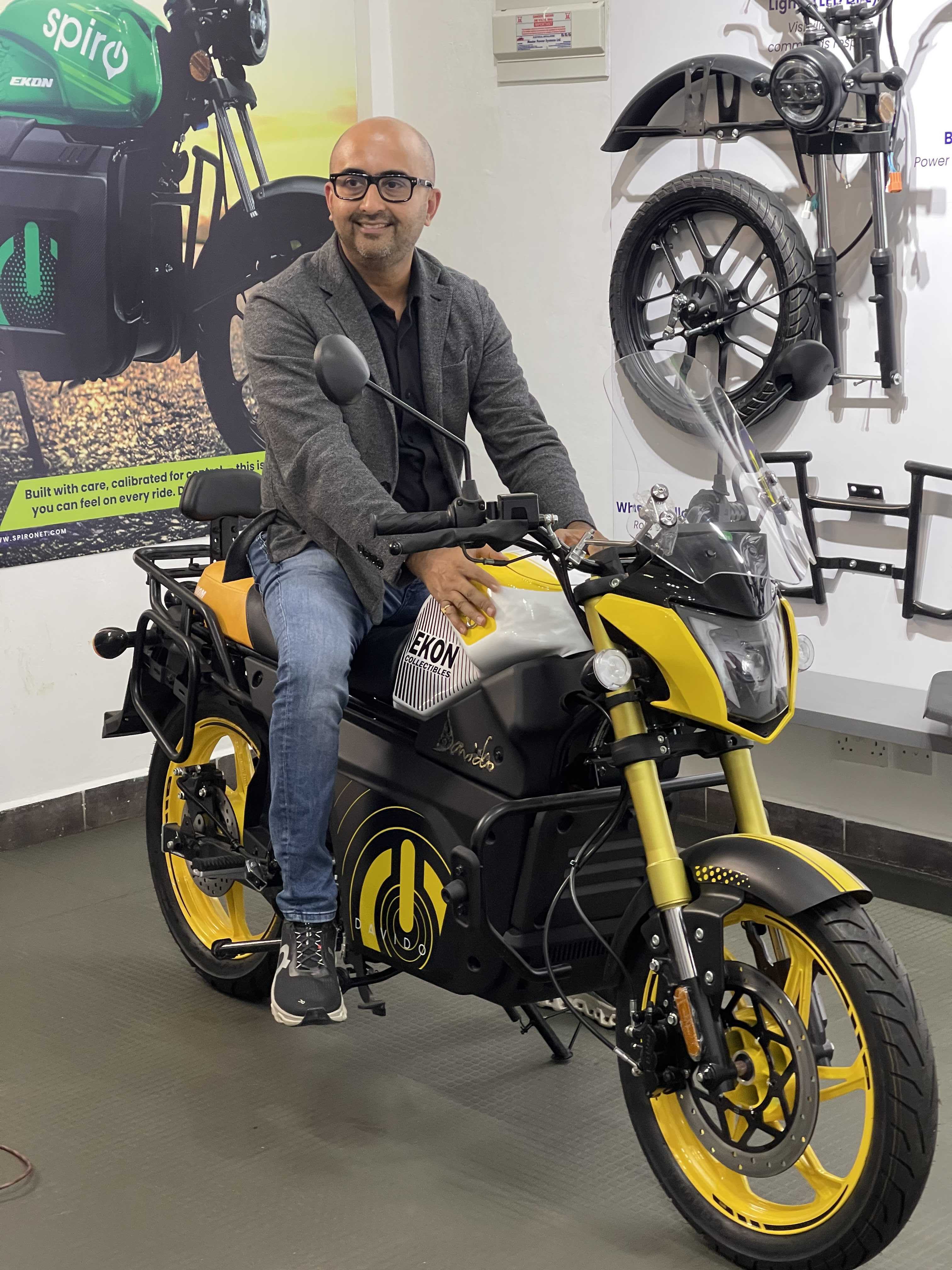
From Shell to Spiro
Burman’s journey to Africa’s electric frontier began thousands of miles away. With over two decades in the energy and mobility sectors, he has worked in boardrooms and factories across Europe, Asia, and North America.
Before Spiro, he worked at Shell, where he led diverse teams across continents, helping bring cleaner fuels like LNG and hydrogen to market. Those years shaped how he thought about clean energy, big, scalable, and capable of real change.
After that, he joined Gogoro, the Taiwanese e-mobility giant listed on NASDAQ, where he led the company’s push into India, Indonesia, and the Philippines, helping to clean up some of Asia’s most congested streets. Then came Africa, a continent whose raw potential for real, lasting impact pulled him in.
“When you see that your products are being used by consumers who can save money and improve their lives, that gives a lot of satisfaction,” Burman told Business Insider Africa.
“In this journey, you’re not just selling bikes, you’re creating jobs, building networks, and contributing to local economies.”
Burman says that at Spiro, innovation isn’t about flashy tech or fancy presentations, but about what actually works on the ground.
“At Spiro, we don’t build technology to impress,” he says. “We build technology that works, that lasts, that changes lives. It’s not about creating a case study for a business school; it’s about real impact.”
“I am very pleased to see Spiro bikes being used by riders who are saving more and improving their livelihoods,” he adds.
That approach, innovation grounded in reality, mirrors what he has seen in other emerging markets like Southeast Asia and India, where he comes from.
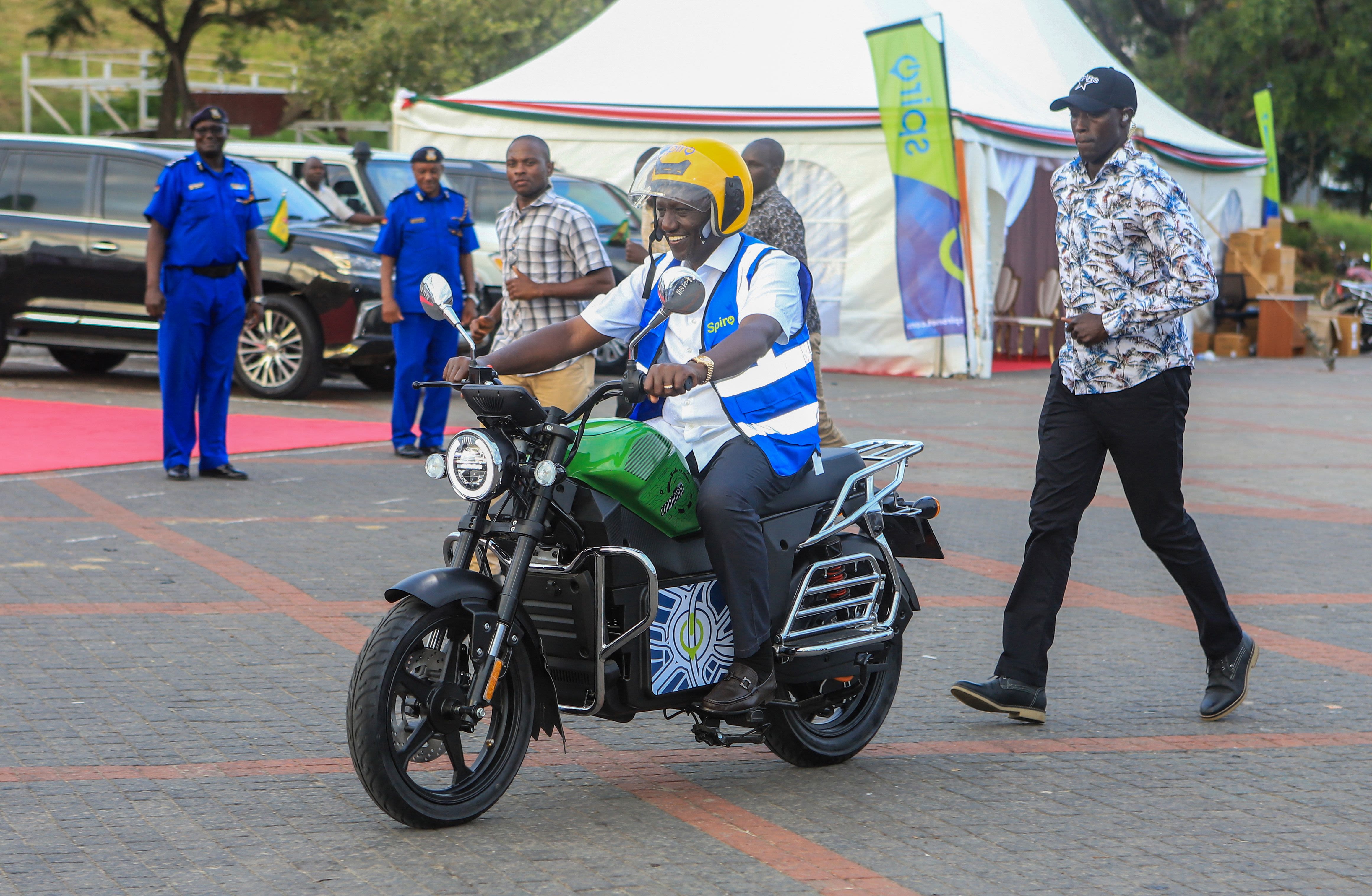
DON’T MISS THIS: Meet the founder who turned down $1.5 million — and built one of Africa’s fastest-growing companies two years in a row
A $150 million bet on clean mobility
Since Burman took the reins, Spiro has raised over $150 million in a mix of equity and debt funding, including a $50 million facility from Afreximbank and a $63 million investment from Société Générale in 2023.
The funds are powering Spiro’s operations and expansion into Kenya, Uganda, Rwanda, Togo, Benin, and Nigeria, where the company operates.
Today, Spiro boasts over 40,000 motorbikes, more than 800 battery-swapping stations, and a staggering half a billion kilometres of CO₂-free travel logged. The company has now passed 20 million battery swaps.
The African reality check
But scaling clean mobility across Africa is far from easy. Burman draws heavily from lessons learned in Southeast Asia’s fast-growing markets, yet he’s quick to admit that Africa presents its own challenges.
According to him, the key is knowing what not to do and staying focused on what truly matters.
“One of our biggest decisions,” he says, “was to make sure we built something affordable.”
That commitment shows in the numbers. Spiro recently announced a retail price of ₦1.44 million ($960) for its Ekon electric bikes in Nigeria, a figure that puts them within reach of everyday riders.
This pricing has made Spiro bikes a strong and competitive alternative to internal combustion engine (ICE) motorcycles, while offering riders up to 40% savings on fuel and maintenance costs, a powerful incentive in economies where every naira, franc, or shilling counts.
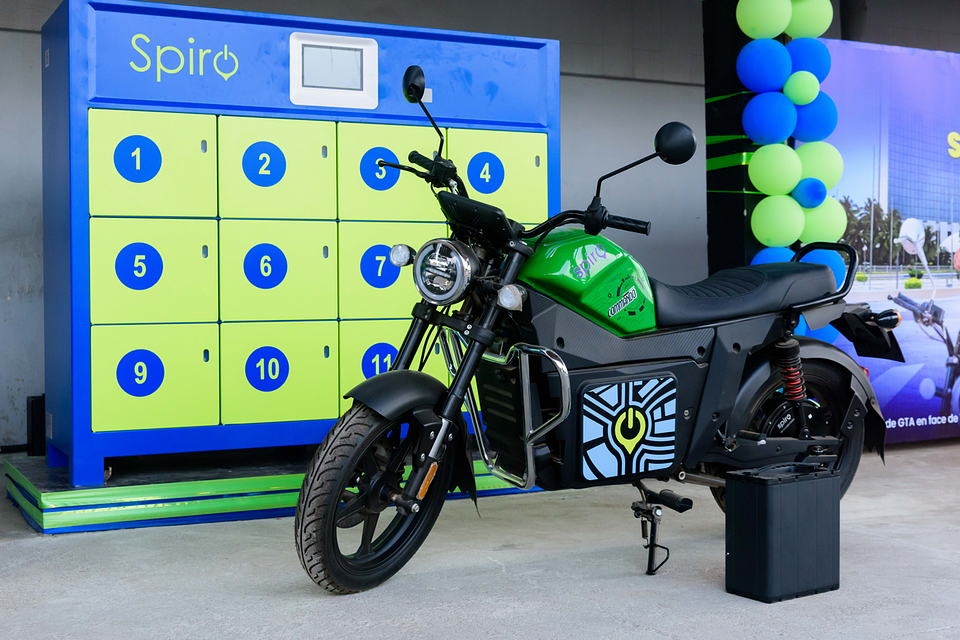
DON’T MISS THIS: Meet Africa’s $7 billion infrastructure architect: Rachel Moré-Oshodi builds roads, grids, and legacies
Made in Africa, for Africa
Spiro’s ambitions, however, go beyond selling electric bikes. The company is betting on local production as the cornerstone of long-term growth. Currently, about 30% of Spiro’s components are sourced locally, up from just 10% last year.
The batteries still come from China, but Burman’s long-term vision is clear.
“While we’ll still rely on external suppliers for critical parts, as we scale production in Africa, we’re also working to bring more suppliers to co-locate on the continent. That’s our end goal,” he said.
Earlier this year, Spiro opened a new assembly plant in Kenya, with another one on the way in Ogun State, Nigeria.
It’s a sign of the company’s deeper commitment to building in Africa, and of its belief that the continent can do more than consume technology, it can create it.
As Burman puts it, “We’re not just importing a product. We’re building an ecosystem, training technicians, supporting local energy networks, and laying the groundwork for Africa’s e-mobility future.”
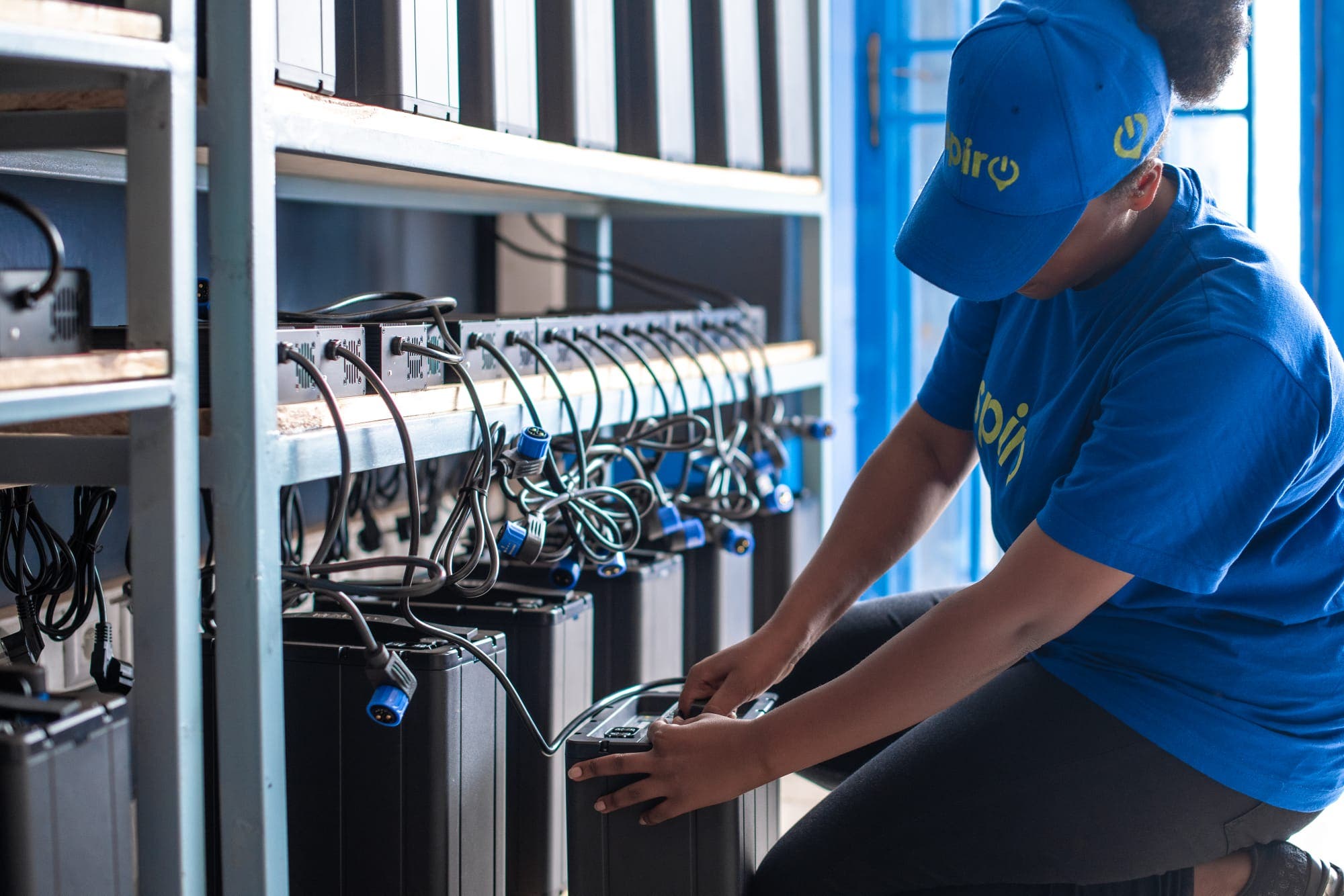
Building smart, staying grounded
When asked for advice on what to do for young African founders in the climate-tech space, Burman’s answer is pragmatic.
“First, observe,” he says. “Really study what your customers need. There’s a difference between a must-have and a nice-to-have. Build for the must-haves.”
“Second, test early. Don’t fall in love with an idea you haven’t put in front of people. Build a minimum viable product, get it out there, and learn.”
“And finally,” he adds with a wry smile, “start raising capital early. Fundraising is a marathon, not a sprint. The sooner you start, the stronger you’ll finish.”
Africa has long been described as the continent of potential. But companies like Spiro are turning that potential into motion, literally.
And if Kaushik Burman is right, the next great leap in mobility won’t come from Silicon Valley or Shanghai, but from the red dust of Africa’s roads, carried forward by the people who ride them.






